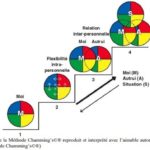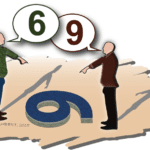“Give me patience, to reconcile with what I am not able to change
Give me strength to change what I can
And give me wisdom to distinguish one from another.”
Marcus Aurelius
This sentence applies to us not only personally and internally, but also externally:
- Change what we can change in ourselves to improve ourselves by eroding what I call “our weaknesses”,
- Accept what we cannot change in ourselves, respecting what I call “our limits”,
- Acquire the wisdom to make the difference, by understanding ourselves better in our strengths, weaknesses and limitations regarding to others and our environment.
It is one of the fundamental problems of personal development: how to transform ourselves, develop our flexibility and adaptability while remaining ourselves. This sentence was written by the Roman Emperor Marcus Aurelius who referred to his mentor, Epictetus, one of the figures of the Greek “Stoic School”, a Greek slave freed by his master, so radiant was he.
It reminds me of Alexander the Great who, at 22, had conquered the world to India (the extreme limit of the world then known). He had heard of a certain Diogenes, the most famous representative of the Greek “Cynical School,” a strange ascetic who lived almost naked in a barrel.
He wished to meet him and was so impressed by his wisdom that he said to him: “Ask me whatever you want, I will give it to you”. Diogenes simply answered him, because Alexander had interposed between him and the sun that he was hiding from him: “Just be your sun.”Alexander is given the following reflection: “If I had not been Alexander the Great, I would have liked to be Diogenes”, meaning that he envied his fulfillment as Marcus Aurelius envied that of Epictetus. May this meditation make us grow in modesty, not to write humility, while assuming ourselves as brilliantly did Alexander the Great and Marcus Aurelius!
This quality is like a fragile and vulnerable flower. It can be picked and put in a vase, trampled by passers-by, grazed by animals or blossom before fading. But its very vulnerability makes it, in its essence, indestructible.






